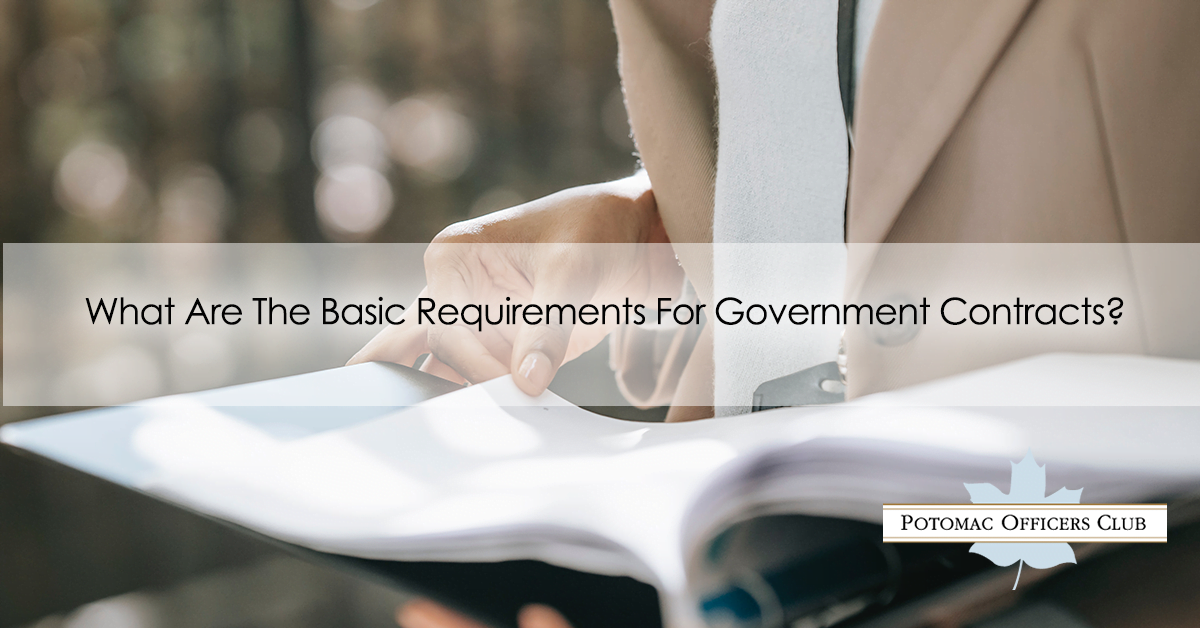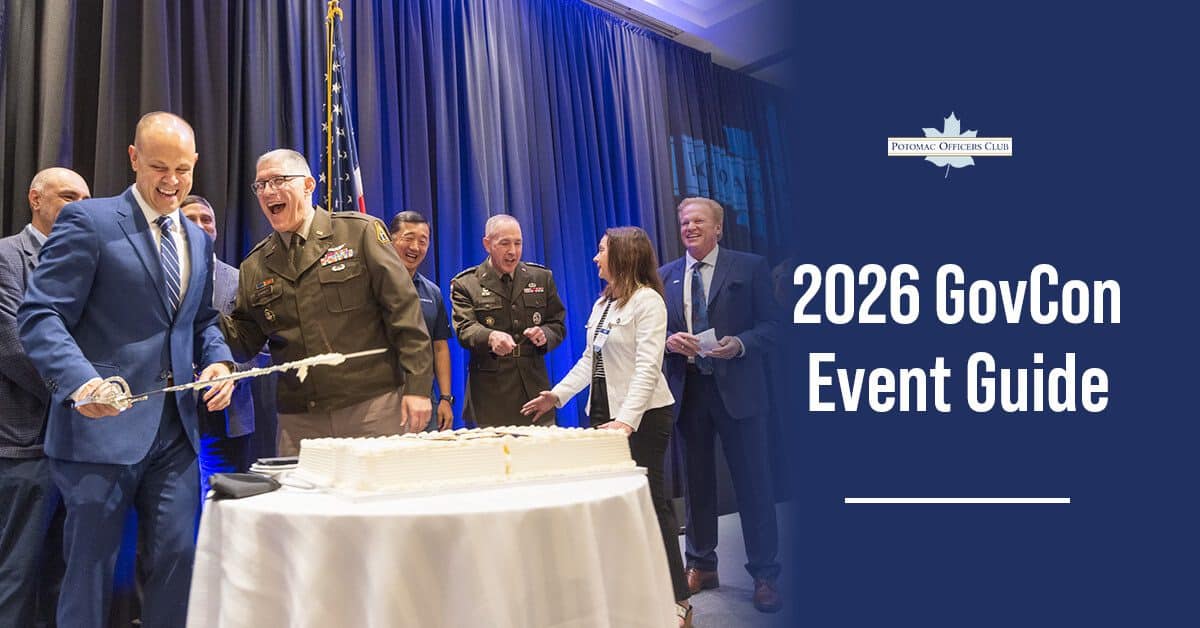
What Are The Basic Requirements For Government Contracts?
The United States government is one of the world’s biggest spenders—and one of the best clients you can have for your business, no matter your industry. Awarding more than $680 billion in government contracts in the fiscal year 2020 alone, entering into a contract with this public institution can unlock lucrative business opportunities that have never been known before.
Signing up to become a government contractor means you willingly enter this hyper-competitive industry. The risk may be great, but the rewards you will reap with your guided efforts will pay it off in the end. Don’t let yourself forge blindly into the field and know these basic requirements for government contracts.
What are the principles of government contracting?
Before going down to the nitty-gritty of government contracting, it is vital to understand the fundamentals of this industry.
Transparency
Government contracts are a matter of public interest, which means that the bidding process is made public to ensure transparency.
The government and the federal contractor should strictly adhere to the objective rules and regulations that govern the process of contracting. Furthermore, should there be any questions, clarifications, and complaints, the government should give the concerned party a public platform where they can freely discuss it with state entities.
Economy
The government contractors use a significant amount of their finite resources to bid for federal contracts. And that is why according to this principle, the selection process for the bidding should be efficient and cost-effective. This means that the federal government should only impose procedures deemed necessary for the contract, considering the urgency of the said contract.
Responsibility
Under this principle, all the parties involved in the federal contracting process should be responsible for their decorum. Any unjust civil, criminal, and disciplinary actions will be penalized appropriately.
Contractual Balance
The state entity and the government contractor should strive to ensure that the federal contract is just to both parties regarding their duties, obligations, and rights. Should there be any imbalance that tips the scale, both parties should undertake methods to restore the contractual balance once more.

How do I become a government contractor?
-
Perform a market research
The federal government mobilizes countless government contractors for different types of projects. But no matter how diverse the market looks, if your products or services are not in demand, then your chances of winning a contract with the government go down significantly.
As a best practice, perform thorough market research first to see how you will fare in the industry. Additionally, you should also look at who will be your competitors. You can visit USASpending.gov and the Government Contracting Opportunities Forecast Tool by the GSA.
-
Maximize every learning resource available to you
Aside from consuming informational articles online such as these, the Small Business Administration offers rich learning resources and services—and most of them are free!
For starters, you can take up SBA’s free online courses about federal contracting here. And also, this organization manages a network of Procurement Technical Assistance Centers (PTACs) that can be found locally. PTACs provide assistance to small businesses interested in government contracting, such as helping them register in the right places, connecting them with mentors, and finding contracts for them to bid on. Look for your nearest PTAC here.
-
Learn about the rules and regulations of the industry
All the money used to fund federal contracts is sourced from the taxpayers. And to ensure that these expenditures are just and transparent, the federal government strictly adheres to this industry’s rulebook—the Federal Acquisition Regulation or FAR.
You should also do additional reading on the policies published by the federal agencies you are targeting to sell to.
-
Register at SAM.gov
Unless you have completed your registration at SAM.gov, you are still ineligible to bid and win government contracts.
The System for Award Management website or SAM.gov is your gateway to becoming a fully realized government contractor. This website also houses some of the key services every government contractor needs. SAM.gov serves as the primary platform for government agencies to publish contract opportunities.
To register at SAM.gov, here is a checklist of everything you will need to fulfill to complete this step.
-
Always be up-to-date with the latest contracting opportunity available
SAM.gov
Government contract opportunities were previously posted at FedBizOpps. But to further streamline the government contracting process, the government integrated this contract opportunities platform into SAM.gov—making the website the central portal for all federal contractors.
Subcontracting Network (SubNet)
This federal website is the place where you can find subcontracting opportunities.
If you are still a growing small business, you should consider becoming a subcontractor. Subcontracting is the more accessible route for small businesses since it doesn’t necessarily require firms to undergo a stringent application process to become one, just like government contracting.
Government contractors and subcontractors work hand-in-hand to execute complex federal projects. Learn more about how you can become a subcontractor in this beginner’s guide.
How do I get approved for government contracts?
Once you have nailed down all of the requirements to become a fully recognized federal contractor, you should now prepare to face another battle again—bidding for federal contracts.
-
Only bid on contracts that you really want
Bidding on contracts requires time and money—finite resources you should conserve, especially during your bidding stage. And that is why you should only select projects to bid for that you are confident and competent enough to handle. Choose contract opportunities that let you play into your strengths.
-
Be highly particular in reviewing your RFP
When you are searching for contract opportunities, the first thing you should look for is their RFP or their Request For Proposal document. This important document contains all of the crucial information to guide you in writing your proposal.
Usually, RFPs can stretch to as long as 100 pages. It may be cumbersome to read, but you should pay close attention to every detail stated there lest you risk your firm getting eliminated from the competition pool due to technicalities.
Furthermore, RFPs are further divided into 13 sections. Each section is equally important, and you should pay even closer attention to the following sections:
- Section B – Supplies or Services and Price/Costs
- Section C – Description / Specifications / Statement of Work
- Section L – Instructions, Conditions, And Notices To Offerors
- Section M – Evaluation Criteria
-
Write a compelling federal contract bid
There are countless proposal templates floating around the internet that you can use as a reference. However, relying entirely on cookie-cutter proposals can make your bid look generic and unforgettable.
When writing a proposal for a federal contract, you should aim to make a lasting impact—make them feel that you are credible, responsible, and competent. To guide you through it, here are some writing tips that you should take note of.
-
Align your proposal with the project goals
Review the contents of the RFP, particularly Section C, to understand the exact requirement of the federal agency. Then, try to formulate a plan on how you plan to address these contract goals by proposing solutions that focus on using your business’s strengths.
-
Adhere to the instructions stated in the RFP
Government agencies are very particular about the technicalities of your proposal bid—from the bidding conditions down to the document’s formatting. Failing to follow any of the instructions stipulated in the RFP can cost you your contract bid.
-
Price your proposal competitively
Use the data you have gathered from your market research to guide you in pricing your goods and services. Make sure that your rates are not too high that it exceeds market expectations, nor too low, which will render you incapable of gaining profit and guaranteeing your service quality.
-
Have your proposal professionally reviewed
Catch any mistakes before it passes the scrutinizing eyes of the contracting officers by having someone review your contract proposal before you submit it.
It is advised to bring in someone who has experience in this field—or you can hire a federal contract proposal writer to guarantee that your proposal is well-written and error-free.
-
Submit your proposal
This step will test your patience and perseverance. The federal government goes through piles of proposals, scrutinizing every submission to properly assess a government contractor’s competence and experience.
Depending on the size of the project you are bidding for, you can expect a response from the federal agency within 30-120 calendar days. During that period, keep your lines open and ensure that you are prepared to answer any clarifications and provide additional requirements.

Category: Articles




